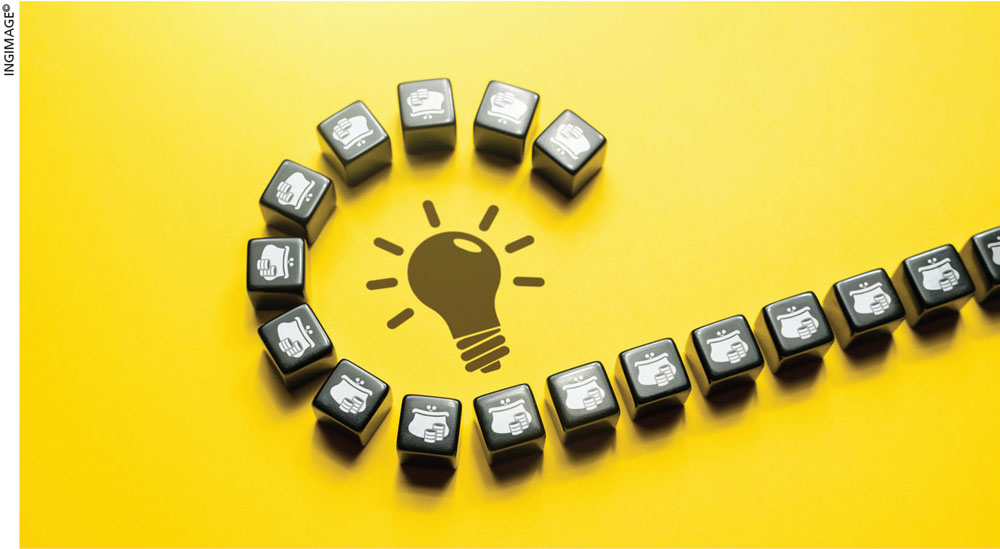MANUFACTURING INDUSTRY
TOWARDS ‘MADE IN SRI LANKA’
Janaka Perera laments state apathy in supporting inventors and inventions
Promoting inventors and their inventions is essential for a country’s progress, and it’s for this purpose that the Sri Lanka Inventors Commission (SLIC) was established. It conducts programmes to promote a culture of innovation in the younger generation and provides financial support to purchase basic tools.
We have engineering in our islanders’ genes as seen in an ancient hydraulic civilisation and giant stupas.
In the 20th century, lest we forget (among others) the father of hydropower in Sri Lanka. He – D. J. Wimalasurendra – also introduced the concept of developing a national grid. In the initial stages of his work, he faced many setbacks including a refusal by the Engineering Association of Ceylon to pay attention to his hydropower proposals for the country.
The Laxapana Hydroelectric Power Complex (Wimalasurendra’s brainchild) was completed in 1950 and paved the way for many more to come. This eventually made Sri Lanka largely self-sufficient in hydropower.
Another pioneering inventor was the late Deshamanya Ray Wijewardene.
He was an engineer, aviator, inventor and Olympic athlete. His most notable invention in 1955 was the two-wheeled walking tractor to help small farmers in the tropics mechanise their work. It was manufactured and marketed worldwide by the Landmaster company. Wijewardene promoted the tractor with farmers in Africa, Asia and Latin America for a decade.
Today, we live in an era of unprecedented and rapid technological change and innovation. The world is now on the verge of entering the age of driverless cars. However, it is necessary to examine obstacles to the promotion of inventions in Sri Lanka compared to how this is done in other countries.
According to Lieutenant Commander (Rtd.) Sarath Wimalasuriya, who served nearly 35 years as a government doctor, some politicians and officials see new inventors as a threat to themselves.
He attributes this attitude to their reluctance to forgo the commissions they could earn by importing foreign products if the same items are turned out locally.
Wimalasuriya manufactured a remote-control boat without a pilot for the Sri Lanka Navy during the civil war years. In spite of the publicity given to this new invention however, there was no national policy to market innovative local products.
A few years ago, he turned out a device to prevent the frequent deaths of elephants as a result of being knocked down by trains. But the railway authorities didn’t bother to test this new railway gate. Frustrated, Wimalasuriya used its parts to make a steel ladder for use in his home.
During the COVID-19 pandemic, a student at Kilinochchi Madhya Maha Vidyalayam made use of his free time to develop a system that could operate a three-wheeler using solar power. Sundaralingam Pirinavan’s grandfather, who is a technician, helped him with this. Whether he received state assistance to market his product is not known.
Another inventor – H. B. Milton, who took steps to turn out three-wheeler spares – had to seek a minister’s help to obtain government approval for his enterprise to produce spares for both petrol and electrically operated three-wheelers in Sri Lanka.
Over the past decade, businesses have been launched to promote new inventions. Among them was LAKRO Industries, which was established in 2009 and later incorporated as LAKRO Inventions in 2015, to promote Sri Lankan innovations in the international market.
Inventor Niranjan Weerakoon (who counts 30 years’ experience) floated this enterprise. It introduced the eco-friendly Lakro Biomass Stove in 2012 and Lakro Electronic Coconut Scraper Machine in 2015 among others.
According to its director Dr. Beshan Kulapala, Vega Innovations along with Technoconsultants has begun manufacturing a solar powered electric three wheeler, which can run a distance of 120 kilometres after charging the battery. Vega also manufactured the eponymous electric car.
Technological development through inventions and innovations is necessary for sustainable economic growth, and the advancement of a nation. Economic growth materialises only with the introduction of radical technological inventions and the capacity to turn them into marketable products.
Sri Lanka has a high proportion of independent inventors who have shown high technical merits in many international exhibitions. But the country still depends on imported technologies.
It is only by improving the local innovative system that we can achieve higher levels of economic success. A study reveals that over 70 percent of local independent inventors haven’t achieved commercial success due to the obstacles they face.
The government needs to leverage the benefits and manage any structural changes that new inventions bring about while minimising costs. Sri Lanka can be considered truly developed only when it has more ‘Made in Sri Lanka’ products.





